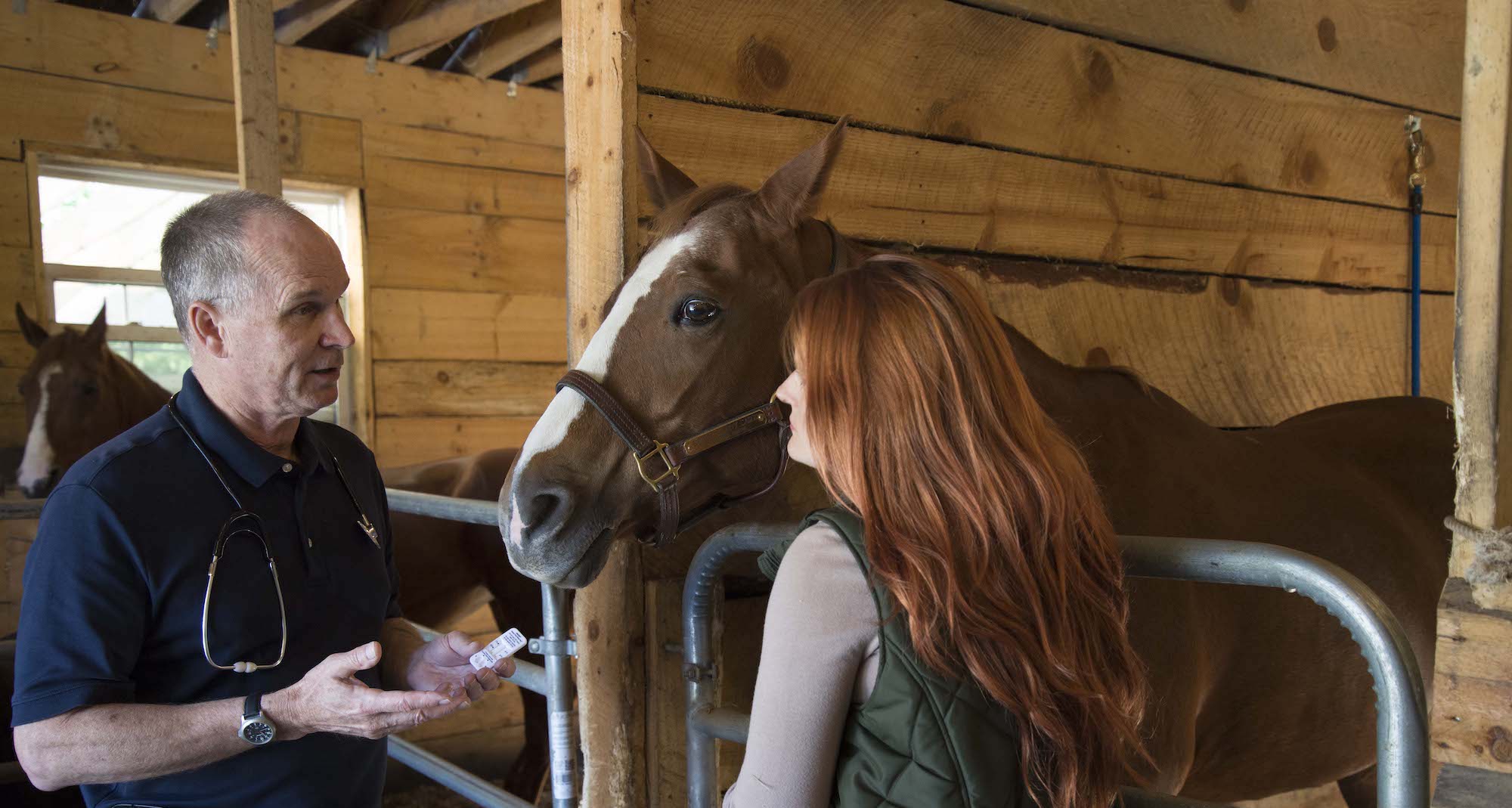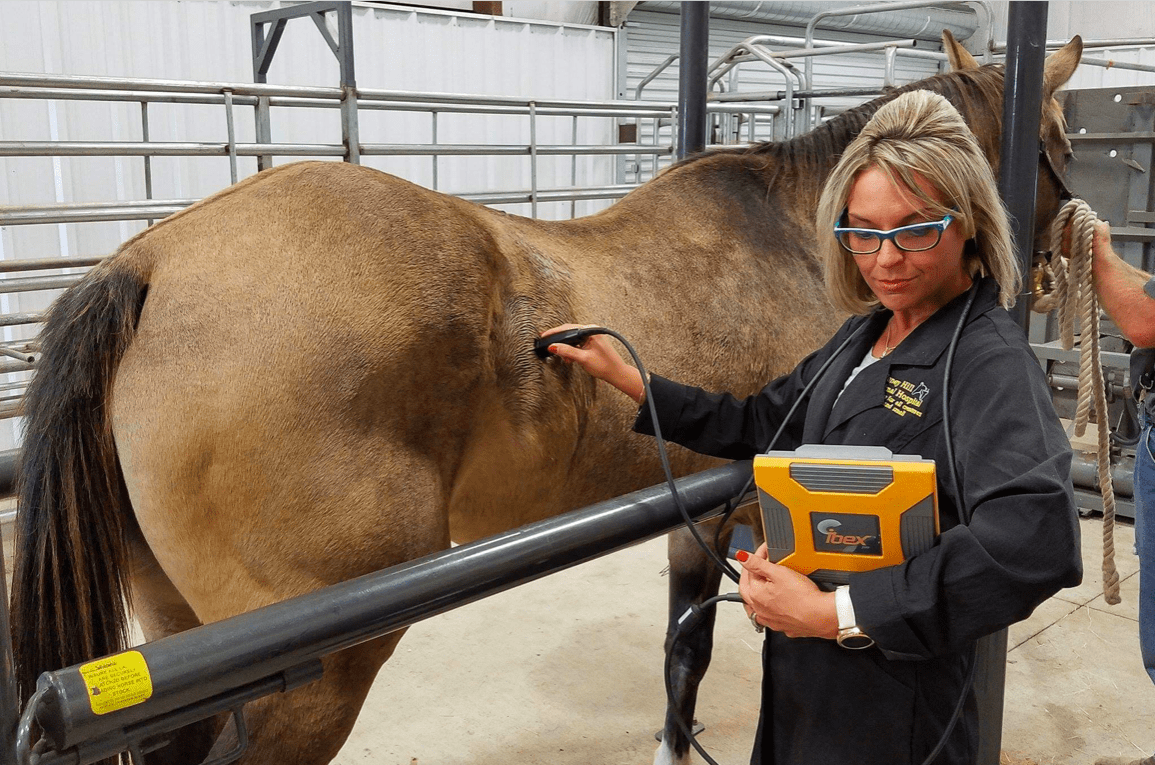Following a year of modification and testing, the SUCCEED® Equine Fecal Blood Test™ (FBT) is being re-introduced at the 2011 AAEP Convention in San Antonio. The advanced diagnostic tool for equine digestive health conditions, including gastric and colonic ulcers, is scheduled to commence shipping in early December, 2011. The product is sold exclusively through veterinarians.
The SUCCEED FBT is a two-part lateral flow immunoassay. Taken together, results from the two parts of the FBT can provide veterinarians with a clearer view of digestive tract pathologies, and can help localize their source. This makes the SUCCEED FBT a strongly differential diagnostic aid.
“We are very excited about the release of the new SUCCEED FBT,” said John Hall, President of Freedom Health, manufacturers of the product. “We believe the FBT is a truly revolutionary product that gives veterinarians a much clearer picture of the digestive health of their equine patients. Without it, veterinarians have to rely on scoping with a 3-meter endoscope just to see the stomach, leaving the colon a figurative ‘black box.’”
Equine ulcers are a significant concern. Significant research over the last 20 years has shown that gastric ulcers can afflict up to 90% of horses in some cases. A study published in 2005 revealed an incidence of 63% colonic ulcers in performance horses. Ulcers have also been shown to affect horse behavior and performance, and may be complicit in some colic cases.
The SUCCEED FBT utilizes antibodies to detect occult – or non-visible – components of equine blood in a fecal sample, which may result from gastric or colonic injury. Test A detects occult equine albumin, and Test H detects the presence of occult hemoglobin. A positive Test A suggests hindgut injury, such as colonic ulceration. A positive Test H result, in conjunction with a negative Test A result, suggests foregut injury, such as gastric ulceration.
The antibodies in the FBT were calibrated to detect within a specified range of sensitivity such that a positive result reflects a true pathological condition. “The sensitivity of the SUCCEED FBT antibodies has been enhanced compared to the previous version of the product,” said Franklin Pellegrini, DVM, VP – Veterinary Science at Freedom Health. “This will ensure more consistently accurate results for the veterinarians who use it.”
The new SUCCEED FBT was tested to validate its accuracy as a reliable indicator of gastric and colonic conditions. Test results were compared with visual observations of gastric and colonic tissue sample from cadavers of 178 equine subjects immediately post-necropsy. The results showed a positive predictive value of 95% for Test A, and 97% for Test H. Both had a p-value of less than 0.05. Details of this research will be available on the website at www.SucceedFBT.com.
SUCCEED® Equine Fecal Blood Test™ is produced and distributed exclusively by Freedom Health LLC of Aurora, Ohio. The company is focused on finding, perfecting and delivering superior, innovative products that address real and significant health-related issues for animals and the people who care for them. For further information on the product, visit the SUCCEED Equine Fecal Blood Test website.



